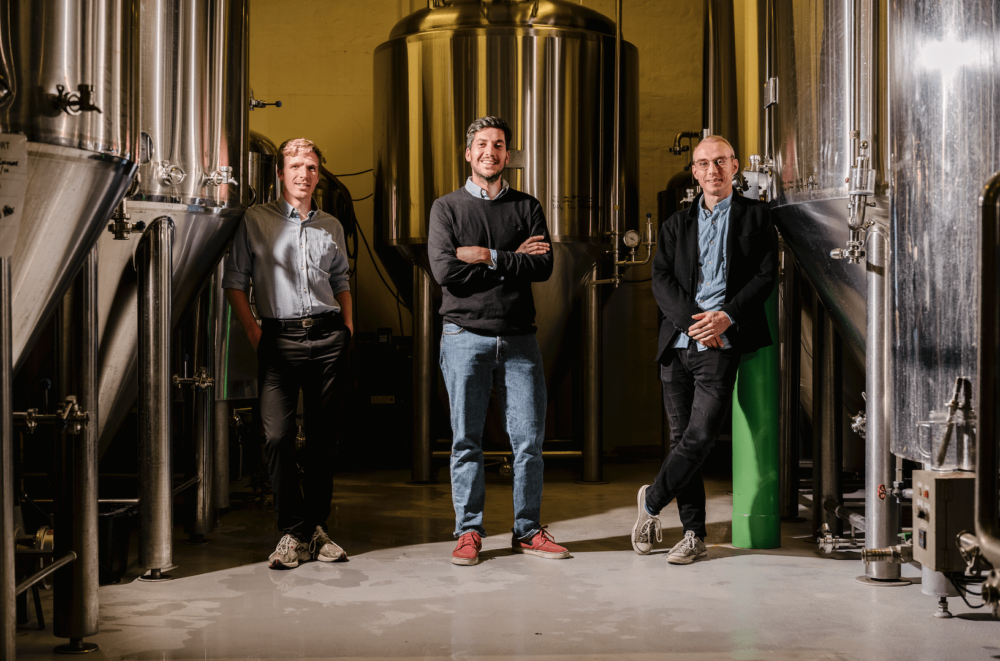It’s no secret that Americans are drinking more during Covid-19. Even homebrewing has seen an uptick in interest as commercial breweries shut down, or people look for ways to pass the time during the quarantine. While beer and technology may be one of the last pairings that come to mind, Danish foodtech startup Zymoscope is absolutely buzzing about it.
“They’re a young team who started this because they are passionate about fermentation and […] craft brewing in particular,” said Mark Durno, managing partner at Rockstart – a Netherlands VC that has just invested in Zymoscope.
“Brewing is a centuries-old craft, which has been an art form used throughout the ages to enhance flavor, to preserve products. It needs to be — and can be — more accurately applied ,and that’s exciting.”
Copenhagen-based Zymoscope has announced a €960,000 ($1.16 million) seed round led by Denmark’s Mads Heine and Vaekstfonden, with Rockstart as co-investor.
The startup is hoping to disrupt the market with its data-driven “fermentation management” platform. Using sensors, the startup aims to help brewers gain better insight into the brewing process and reduce waste. This includes real-time fermentation data so that brewers can make important adjustments when it matters the most.
“They’ve created a sensor […] that allows them to make simple measurements that they can extrapolate across other important measurements for fermentation,” Durno said.
“Most brewers are doing this based on gut feeling or experience of what the end product is going to taste like, so it’s not really a measured art.”
Although there are some solutions to help get a better understanding of the brewing process, they tend to be costly, and require a bigger initial investment than many brewers are able to make. Zymoscope’s sensor is affordable in comparison, according to Durno. And while there are a few other startups working on digitalizing the brewing process, he views Zymoscope as an outlier.
Beer is only the beginning
“‘Why only limit this to craft brewers?” is the question that Rockstart put to the Zymoscope team when they went through the Dutch VC’s accelerator program.
“Fermentation is a much bigger target opportunity,” Durno said. “With some of the corporate partners that we work with, they were able to investigate what it would mean for alternative proteins. So there’s really a lot more growth ahead of them than first anticipated.”
The Zymoscope team was open to criticism and suggestions, he added – which made a huge difference in terms of being able to explore future opportunities beyond beer.
For now, the startup is targeting craft brewers. It’s working with 10 brewers in the Danish ecosystem, and four have already been using the sensors for a year. With the new funding, Zymoscope will focus on getting more brewers on board. They have a long list of potential users, according to Durno, and plan to expand during the next 12 to 18 months.
Fermentation (back) in vogue
A 2020 report from the alternative protein-focused Good Food Institute (GFI) concluded that fermentation companies creating alternatives to animal-derived foods and ingredients have seen a record-breaking period in terms of fundraising. GFI views fermentation as the “third pillar” of alt-protein, alongside plant-based analogs and ‘lab-grown’ cultured meat.
Fermentation of protein products entails working with microbes like microalgae or mycoprotein to produce biomass and create novel ingredients. The process also underpins other foodtech innovations like natural food dyes, hyper-sweet sweeteners, and super-powerful preservatives. But it has, of course, been used for millenia to produce beverages like beer and to preserve fruits, vegetables, meats, and dairy items.
Despite the renewed excitement around fermentation, Zymoscope has a few dragons to slay as it starts to take its concept to the next level. The modern fermentation industry is “under-digitalized,” according to Durno, meaning the startup will have to work hard to make a name for themselves in his opinion. He compares the situation to soil sensing tech, which has come a long way since it debuted many years ago.
“Ultimately, [soil sensing solutions] have come up against a lot of challenges around ensuring that the accuracy is high enough and I think the same will be true for fermentation, where you want to have pretty pure fermentation on a molecular level,” he said.
“That’s going to be incredibly difficult to benchmark.”
Another challenge will hit about a years from now after Zymoscope are expected to have expanded into segments of fermentation beyond beer brewing. This will require more R&D – and more time figuring out how to apply its sensors in a new context.
Fortunately for Zymoscope, Durno and the Rockstart team are already love-drunk with the concept.
“We just really, really like the guys behind this and are really impressed with them,” he said.





